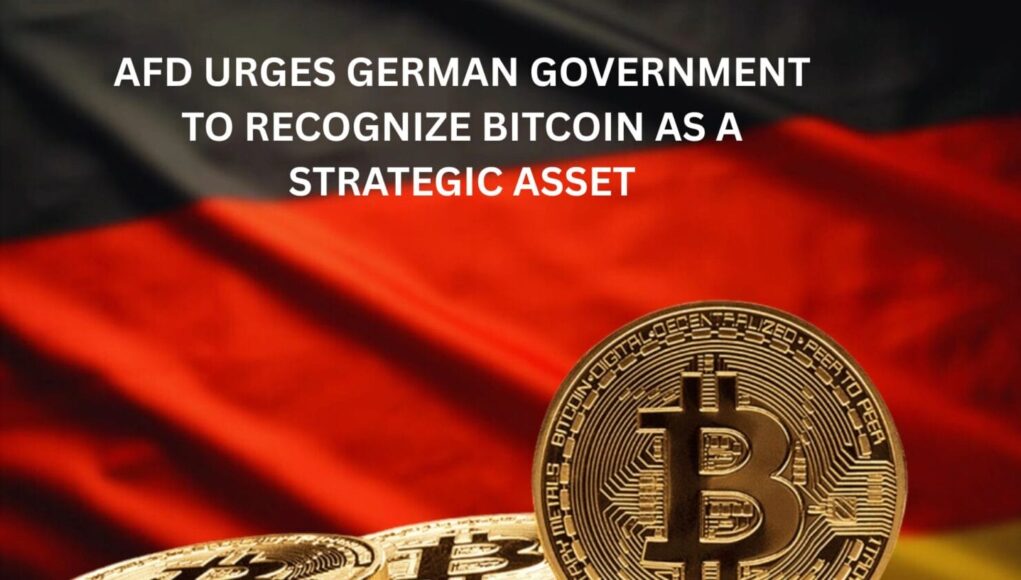Key Takeaways
- The motion argues that Bitcoin’s unique characteristics distinguish it from other digital assets covered by MiCA.
- The party’s MPs requested that the government prepare a comprehensive “strategic statement” outlining Bitcoin’s role as “free, digital money in the 21st century,”
Germany’s leading opposition party, Alternative for Germany (AfD), has submitted a parliamentary motion urging the federal government to recognize Bitcoin as a “strategic asset” and exempt it from the European Union’s Markets in Crypto-Assets (MiCA) regulation.
Filed on October 23, the motion argues that Bitcoin’s unique characteristics distinguish it from other digital assets covered by MiCA. The AfD claims Bitcoin should not face the same regulatory and tax burdens as crypto tokens issued or controlled by centralized entities.
In the motion, AfD lawmakers emphasised Bitcoin’s attributes as a “decentralized, non-manipulable, and limited-availability digital asset,” arguing that such qualities make it incompatible with MiCA’s framework. “Overregulation of Bitcoin service providers and users in the course of national MiCA implementation jeopardizes Germany’s innovative capacity, financial freedom, and digital sovereignty,” the motion states.
The AfD further demanded tax clarity, urging that the current 12-month holding period for tax-exempt gains on Bitcoin be maintained. It also proposed that private Bitcoin mining and the operation of Lightning nodes not be classified as commercial activities.
“The German government has so far failed to strategically recognize Bitcoin, for example as a technology for energy integration or, in times of increasing monetary instability, as an asset held within the framework of currency reserves,” the group noted.
In addition, the party’s MPs requested that the government prepare a comprehensive “strategic statement” outlining Bitcoin’s role as “free, digital money in the 21st century,” focusing on its technological, energy, and monetary policy implications.Last year in June, the German government reportedly sold nearly 50,000 BTC that was seized by law enforcement from past criminal cases.
The latest development comes amid several other EU countries pondering over potentially introducing a bitcoin reserve. Earlier this week, Union of the Right for the Republic party led by Éric Ciotti in the French Parliament reportedly introduced a bill to establish a strategic Bitcoin reserve. The proposed bill consists of a plan to accumulate 2% of the total Bitcoin supply, amounting to approximately 420,000 BTC within the next 7-8 years.







